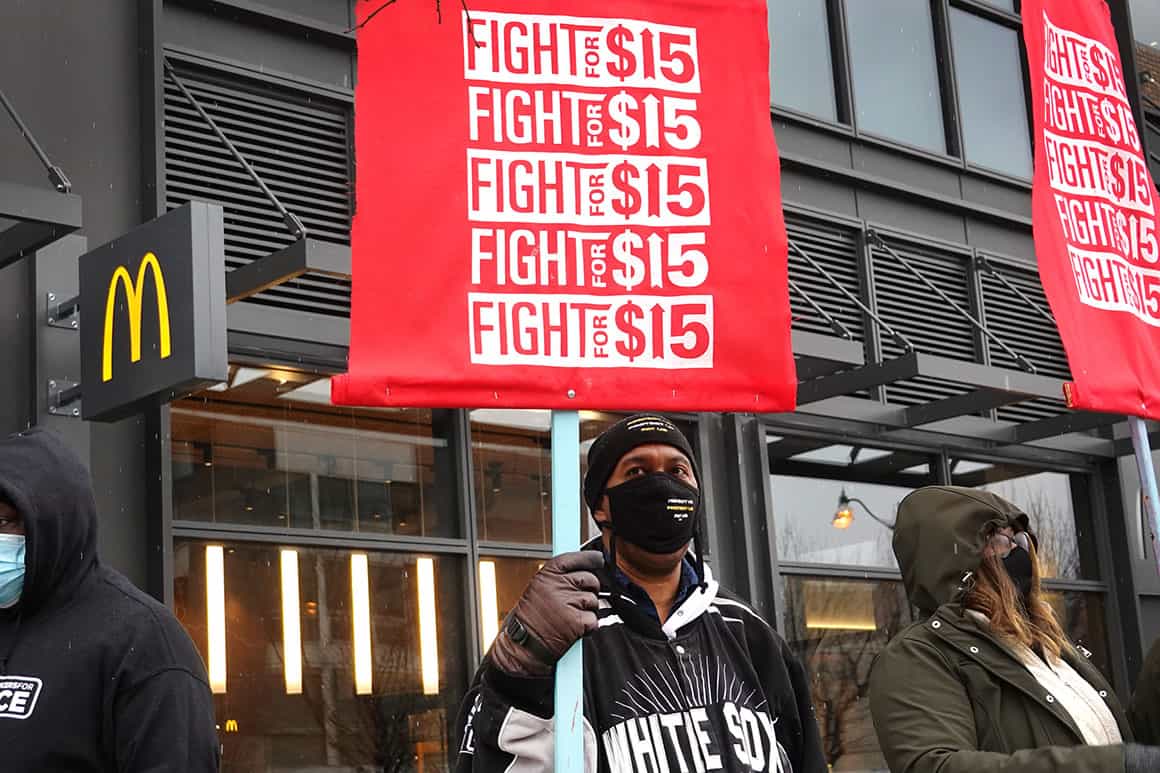
Rund Khayyat is a student at Harvard Law School.
Many American workers faced a Hobson’s choice during the pandemic: either return to unsafe workplaces, or refuse to work and lose wages and unemployment insurance (UI) eligibility. To address the dilemma, the Department of Labor directed states on Thursday to begin providing unemployment benefits to workers who refuse to return to work, or to accept a job offer, over concerns about workplace virus exposure.
The expanded eligibility is under the federal CARES Act, which provided Pandemic Unemployment Assistance (PUA) to self-employed individuals, independent contractors, and other workers that traditional state-managed UI programs don’t cover. Though regular UI is a creature of state law, the PUA falls under the authority of the Labor Department.
The new guidance extends PUA benefits to three categories of workers: those who lost traditional unemployment benefits because they refused to return to an unsafe job; those who faced layoffs or reduced hours due to the pandemic; and school employees at risk of losing stable pay or employment if their schools close because of the virus.
The first category applies to employees who refused to work at a site that “is not in compliance with local, state, or national health and safety standards directly related to COVID-19,” according to the guidance letter. “This includes, but is not limited to, those related to facial mask wearing, physical distancing measures, or the provision of personal protective equipment consistent with public health guidelines.” Those who apply would have to testify that they faced unsafe conditions at work.
Also Thursday, the Senate parliamentarian ruled that the $15 minimum wage provision, which Democrats attached to the $1.9 trillion Covid-relief bill, was ineligible for passage through the budget reconciliation process. As we previously reported, Democrats hoped to rely on reconciliation, a mechanism that only requires a simple majority, to pass the wage hike because they wouldn’t have the 60 votes needed to otherwise pass the provision through the Senate. Budget reconciliation, however, only applies to “taxing and spending” provisions, and the parliamentarian ruled that the $15 hike fails to meet that requirement.
The ruling deals a significant blow to the fight for $15. Progressives have called on party leaders to set the decision aside and proceed anyways, which is technically within Vice President Harris’ authority, but the White House is unlikely to take this path and risk isolating Republicans.
Alternatively, Democrats could garner 50 votes to overrule the parliamentarian’s decision. But they are unlikely to have the necessary support — West Virginia Senator Manchin, a moderate Democrat, had already indicated he would not supply the key vote. Even if Democrats did restore the wage measure to the reconciliation process, they would still need to convince Manchin, or alternatively to recruit a Republican, to reach 50 votes to pass reconciliation.
Alternatively, Senate Budget Committee Chairman Bernie Sanders has pledged to seek an amendment that could make the wage increase a more explicitly fiscal measure, which could meet reconciliation requirements, and could potentially garner more support.
Senate Finance Committee Chairman Ron Wyden of Oregon proposed another alternative, stating that he’s “looking at a tax penalty for mega-corporations that refuse to pay a living wage.”






Daily News & Commentary
Start your day with our roundup of the latest labor developments. See all
March 4
The NLRB and Ex-Cell-O; top aides to Labor Secretary resign; attacks on the Federal Mediation and Conciliation Service
March 3
Texas dismantles contracting program for minorities; NextEra settles ERISA lawsuit; Chipotle beats an age discrimination suit.
March 2
Block lays off over 4,000 workers; H-1B fee data is revealed.
March 1
The NLRB officially rescinds the Biden-era standard for determining joint-employer status; the DOL proposes a rule that would rescind the Biden-era standard for determining independent contractor status; and Walmart pays $100 million for deceiving delivery drivers regarding wages and tips.
February 27
The Ninth Circuit allows Trump to dismantle certain government unions based on national security concerns; and the DOL set to focus enforcement on firms with “outsized market power.”
February 26
Workplace AI regulations proposed in Michigan; en banc D.C. Circuit hears oral argument in CFPB case; white police officers sue Philadelphia over DEI policy.